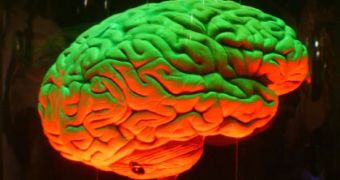In most people, their most powerful memories are those of a single event, such as a birth, a funeral, a death, a birthday party, a wedding proposal, and so on. And while everyone knows this, scientists have found it close to impossible until now to understand what exactly is going on inside the brain that allows them to retain these memories and to recall them with such intensity and clarity. A team of researchers from the University of California in Irvine (UCI) now believe they may have cracked this long-term dilemma.
Basically, the main question has been why does a single event activate the same amount of “memory cache” as a repetitive one. To test possible answers, a team led by neuroscientist John Guzowski did an extended study on unsuspecting rats, which they made run in circles in a small rectangular box. One of the groups ran a single lap around it, while others ran several.
The researchers then analyzed an area of their brains known as the hippocampus, which had been known for a long time to play a crucial part in learning and memory in humans. The experts looked specifically for signs of neural activity in the CA3 segment of the hippocampus, a region where previous studies had hinted that memory “receptors” could be found. For this experiment, Guzowski and postdoctoral researcher Teiko Miyashita looked for activation patterns in a gene known as “Arc.”
This gene plays an important role in triggering the activity of the neurons located in CA3. The scientists were able to measure that approximately 15 percent of these neurons were activated in the brains of rats that only ran a lap around the box. In those who ran two or more, exactly the same percentage was recorded, which validated a former hypothesis that held that the brain recorded all memory cues in exactly the same way, despite their duration.
“Our findings on Arc regulation in CA3 neurons should prove useful to researchers testing new therapies for Alzheimer's disease. If you understand how the hippocampus works, it is much easier to understand and potentially treat diseases that affect memory,” Guzowski argues. “Together with our past findings, this study provides key insight into how fleeting experiences can be captured by the brain to form lasting memories.”

 14 DAY TRIAL //
14 DAY TRIAL //